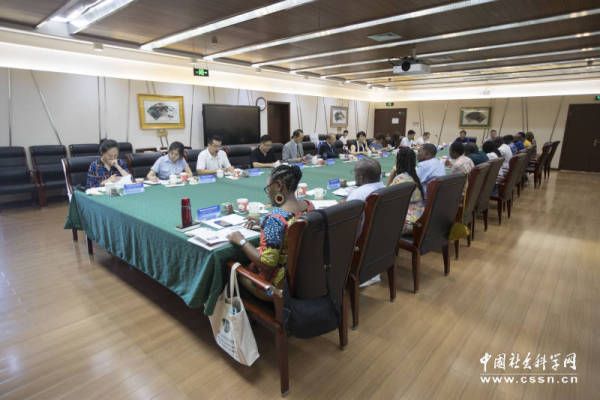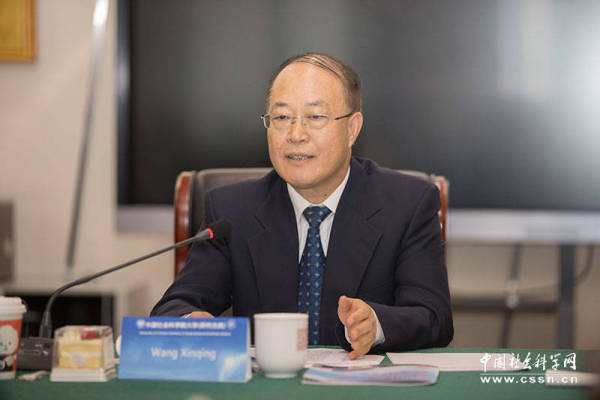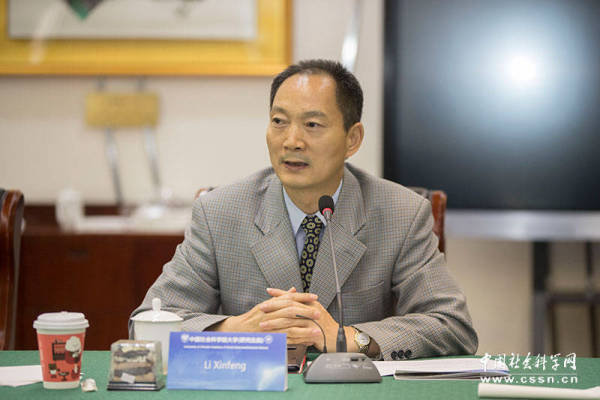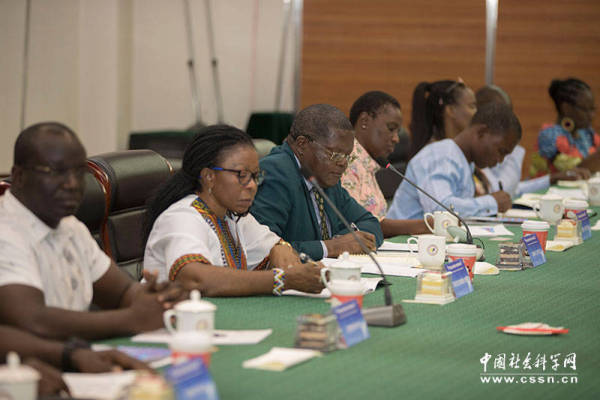——A delegation of scholars from African English-speaking countries to China visited University of Chinese Academy of Social Sciences (Graduate School of Chinese Academy of Social Sciences)

On July 3, 2019, a delegation of scholars from African English-speaking countries visited University of Chinese Academy of Social Sciences (Graduate School of Chinese Academy of Social Sciences), and had a symposium with Chinese scholars entitled “China-Africa Higher Education Exchange and Cooperation”. The delegation got the relevant information about University of Chinese Academy of Social Sciences (UCASS) and had the exchanges with Chinese scholars. Wang Xinqing, Vice President of University of Chinese Academy of Social Sciences (UCASS) and Dean of Graduate School of Chinese Academy of Social Sciences (GSCASS), and Li Xinfeng, Executive Vice-President of the China-Africa Institute and General-Director of Institute of West-Asian and African Studies (IWAAS), CASS, presented the meeting and made speeches.

Wang Xinqing briefed the participants on the founding of University of Chinese Academy of Social Sciences (UCASS), the current enrollment system of its faculties, and the student training system. He gave the positive response to the question of “how to integrate the Belt and Road Initiative with teaching in universities and colleges” put forward by Carlos Kanchira, Head of the Delegation of Scholars from African English-speaking countries to China and Dean of the School of Humanities and Social Sciences, University of Namibia, and said that the BRI has seen warm reception and active participation of the universities and colleges since it was first proposed. There are three ways to combine the BRI with the teaching in schools: first, set up research institutes related to the BRI and conduct in-depth research on the BRI and relevant issues; second, strengthen the cooperation with the partner universities and colleges and held the work of talents training, such as selecting overseas students and organizing short-term talents training courses according to the national cadre training; third, some technical colleges provide the technical support for the BRI directly and promote the technical connectivity between China and the BRI partner countries. And he pointed out that UCASS would like to cooperate with African universities and colleges at various levels and types in the future, and actively provide theoretical and practical support for the cooperation of China-Africa universities and colleges so as to effectively promote the cooperation and exchange of higher education between China and Africa.

Li Xinfeng explained the relationship between IWAAS, CASS and the West-Asian and African Research Department of UCASS. He said that the symposium provided a rare opportunity for exchanges and cooperation between UCASS and universities of African countries, and emphasized that China-Africa Institute would strive to promote counterpart cooperation between universities of China and Africa.

Zhu Kongjing, Director of Office of UCASS, Wang Xiaoming, Dean of the Institute of International Education of UCASS, Weng Jianmin, Director of Department of Publicity of UCASS and Wang Wei, Director of Department of International Exchange and Cooperation of UCASS, participated in the symposium and briefly described the situation of cooperation in the field of academic exchanges between the respective department and African countries.
More than twenty experts and scholars from Namibia, Zimbabwe, Nigeria, South Africa, Sierra Leone, Botswana, Uganda, Tanzania, Zambia, UCASS and IWAAS, CASS, presented the symposium. At the symposium, the participating experts and scholars carried out in-depth discussions on the system and mechanism of students' cultivation in Chinese and African universities, and the problems and countermeasures in the interactive cultivation of talents between China and Africa. Experts and scholars said that after the symposium, the cooperation between Chinese and African universities and research institutes will be put into effect. Through this exchange, the wills of both sides should be truly organically connected and the two sides can dedicate themselves to jointly build a closer China-Africa community with a shared future.
